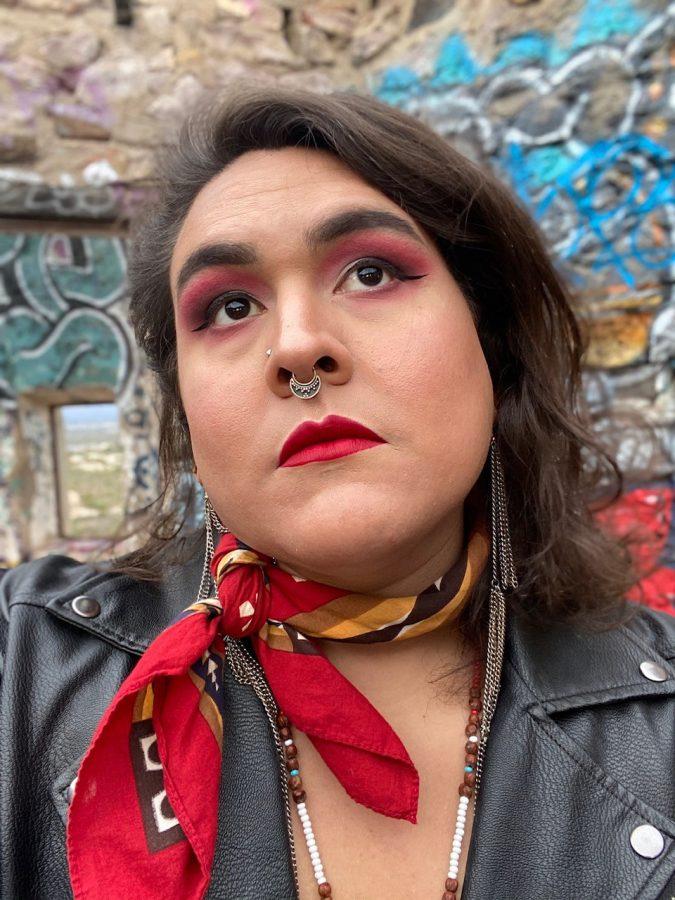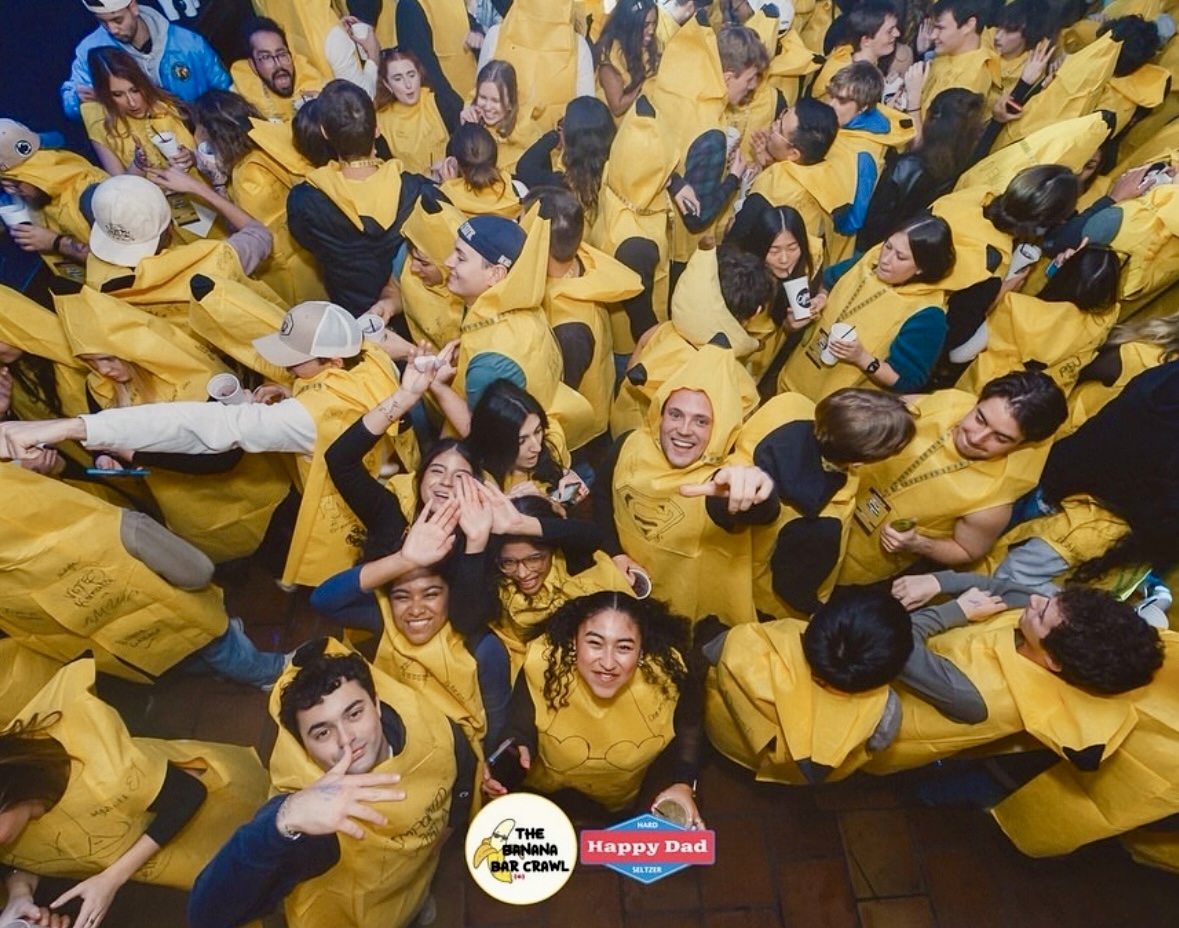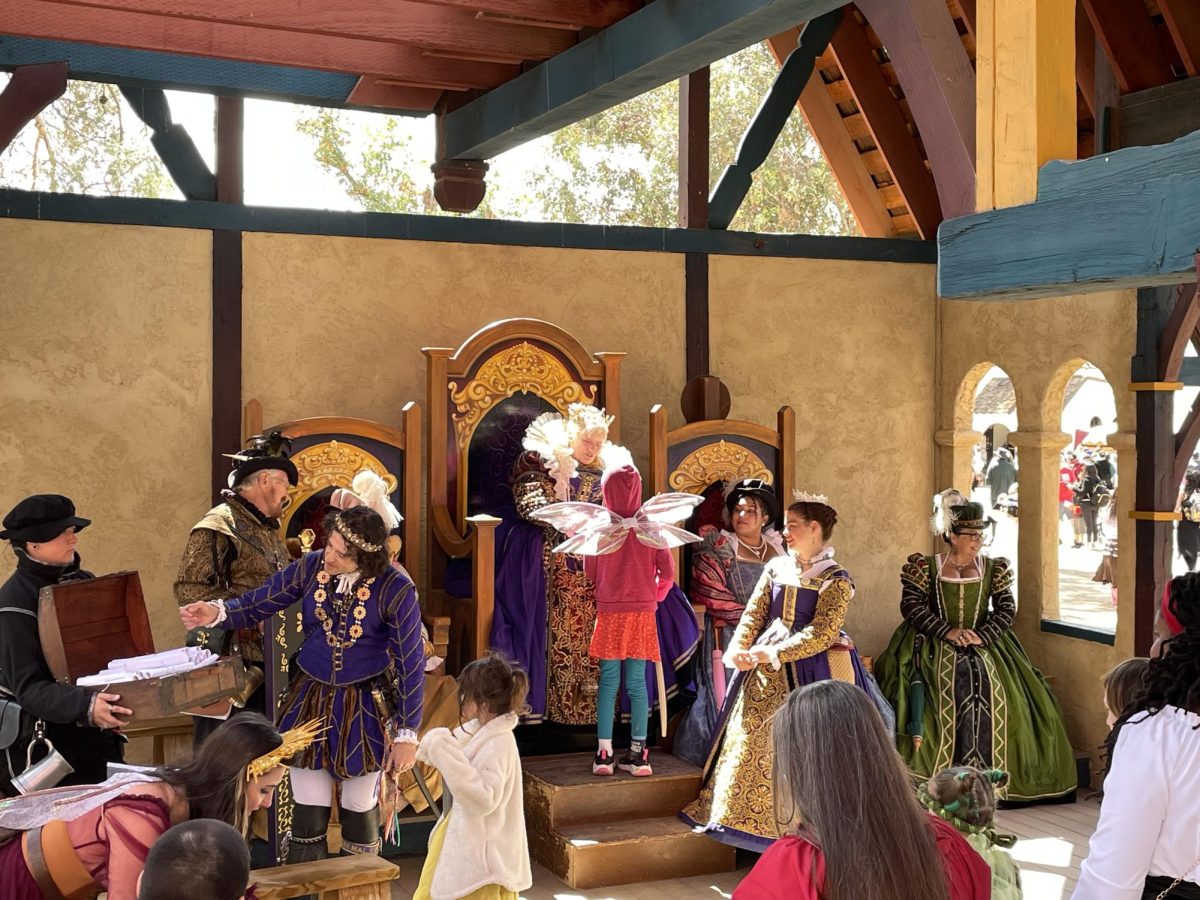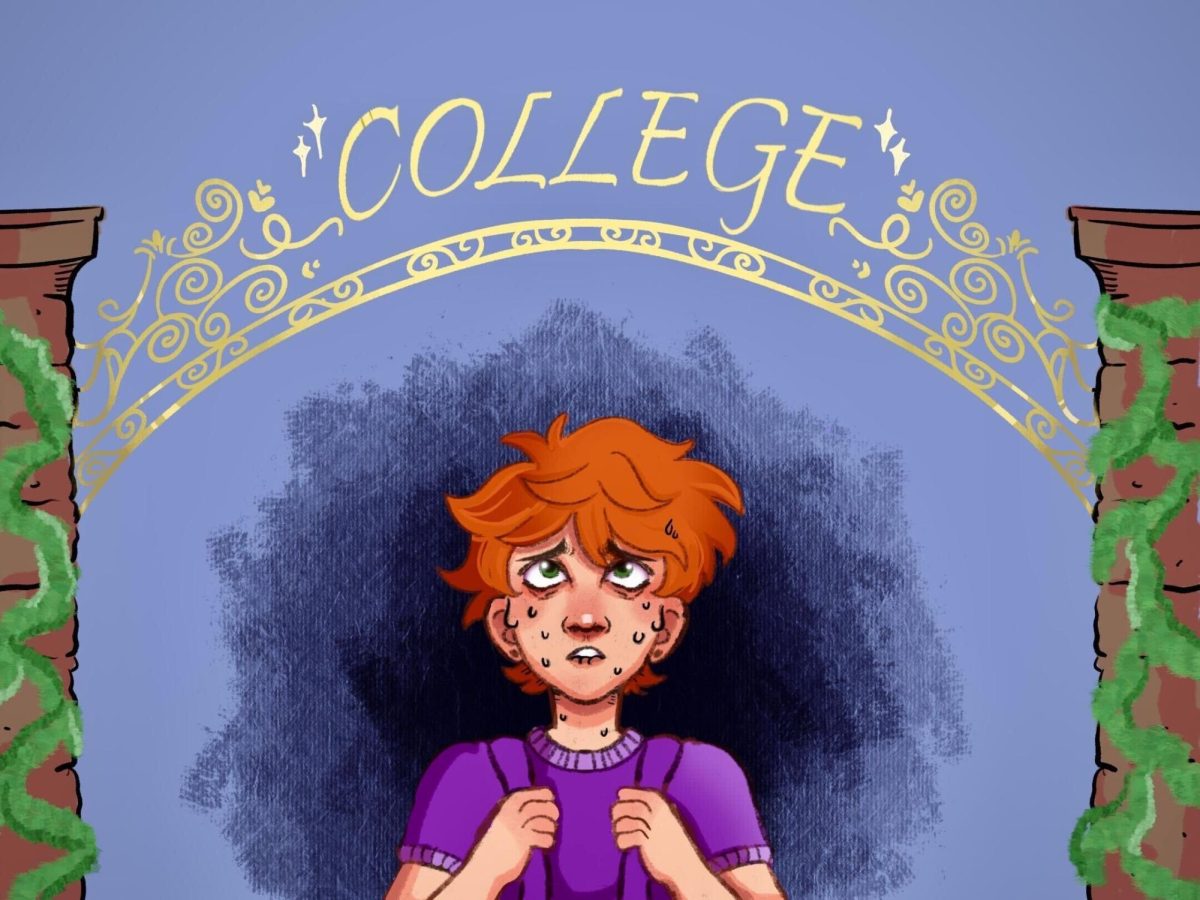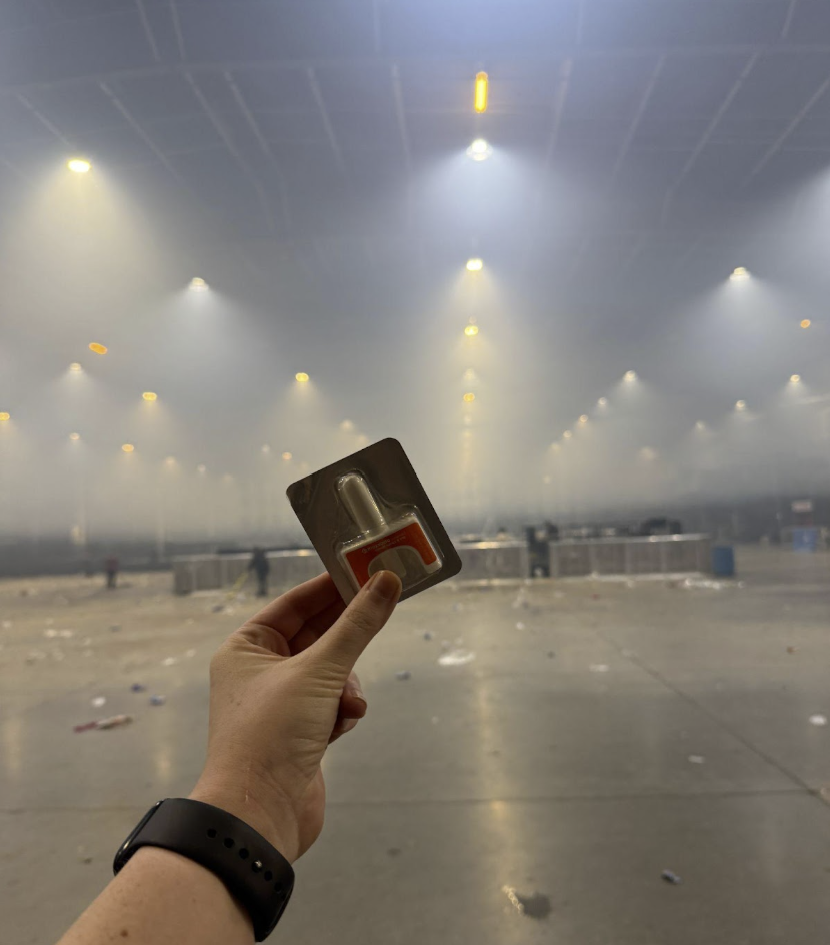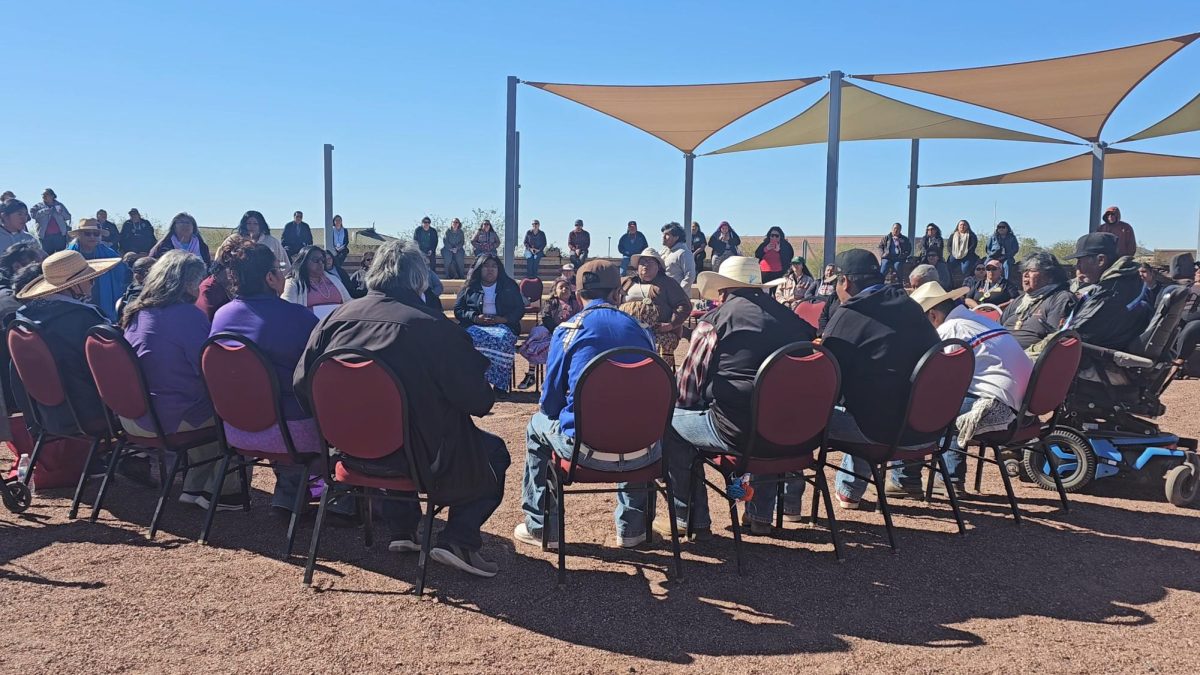Quiahuitl Villegas knew she had become a Governor’s Arts Awards finalist when the announcer admitted he would have difficulty saying her name.
Villegas is a local percussionist with Yaqui and Mayo roots, the drummer for the Tucson band Taco Sauce and a member of the music collective Sonido Tambó, which focuses on a specific style of border music with roots in Colombia, called Cumbia.
According to the Arizona Citizens for the Arts website, the Governor’s Arts Awards “reflect more than three decades of the best in Arizona’s arts and culture community and the magnificent contributions they’ve made to our state’s arts and cultural heritage.”
As one of two Tucson artist finalists for the Governor’s Arts Awards, Villegas’ work and community involvement will be reviewed on three specific criteria, as listed by Arizona Citizens for the Arts: the weight of her achievements, the range of her influence and the “degree to which the nominee is dedicated to the arts.” She needs to not only have great artistry but also impact her community.
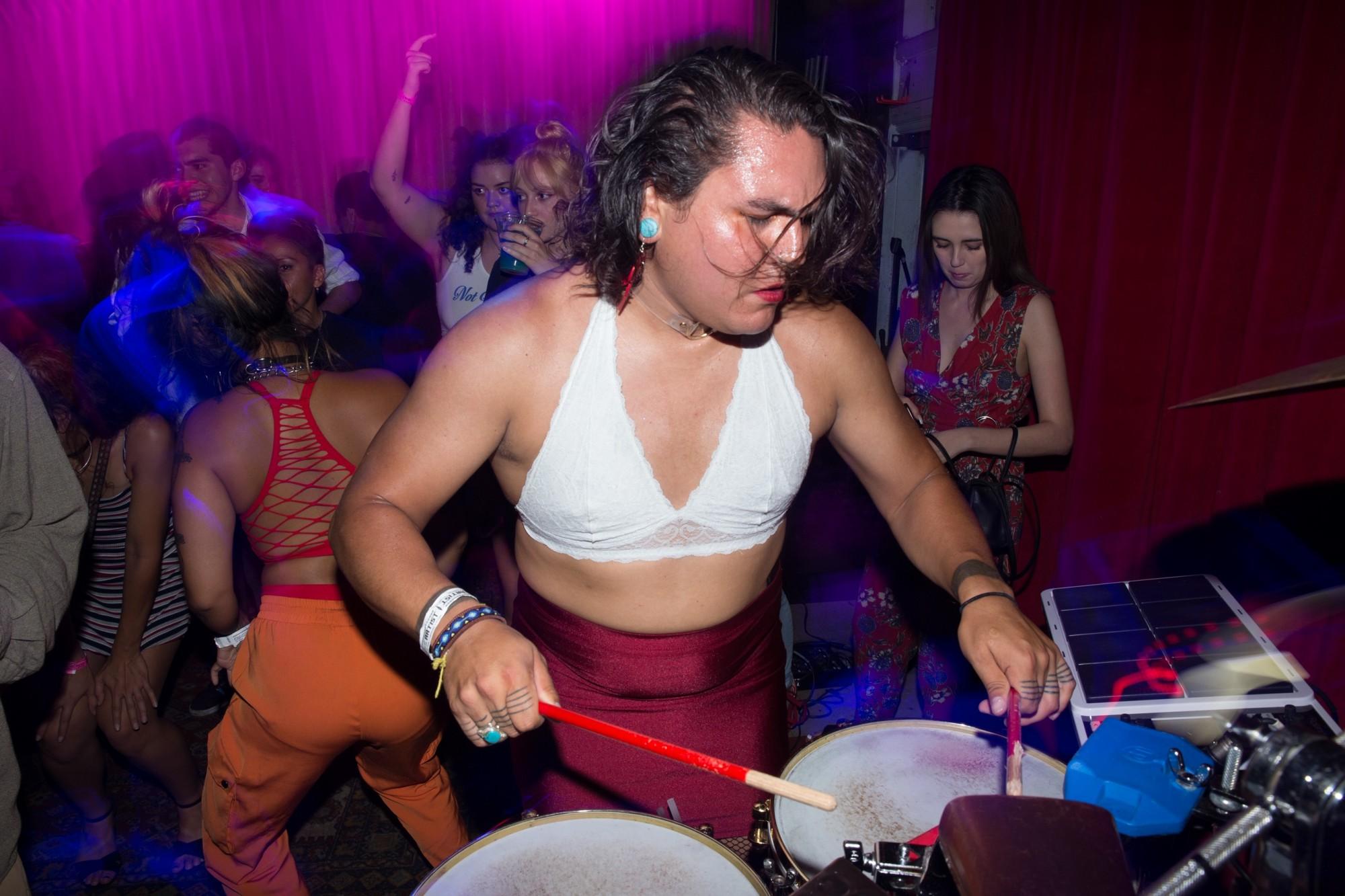
University of Arizona alumna Yurika Isoe is a member of Arizona Citizens for the Arts, one of the organizations that hosts the awards alongside the Arizona Commission on the Arts and the Office of the Governor of Arizona. Isoe explained their “job [at Arizona Citizens for the Arts] is to persuade lawmakers to fund the arts.”
Villegas has a history in music education at local schools, where funding for the arts has been a constant barrier.
RELATED: Artists showcase their unique visions at the “On Our Own Time” art exhibit
“Accessibility is always the biggest issue,” Villegas said. “That’s like the biggest barrier, I think, along with already having to teach kids how to play and read music and all these things. Because at the end of the day, it helps to have good equipment.”
For Villegas, becoming a finalist for the Governor’s Arts Awards was encouraging because she said she realized that the work she does, whether or not the funding comes through, helps people and she is being recognized for that.
“The work that I do and winning that award kind of gave me a boost of self-confidence because I had been in and out of finding funding, and I just kind of got tired of it,” Villegas said.
Music education is just one aspect of Villegas’ qualifications for this award. As she became more involved in her professional work with education, she developed a program to teach elementary students about percussion and drumming. She quickly realized the benefits her drumming program had on students.
“That was really cool because the assumption is that kids that have behavioral issues can’t do anything besides act out,” Villegas said. “So, we proved them all wrong, and they were playing drums and they’re playing these really complex rhythms.”
RELATED: What you should know after the ASUA primary elections
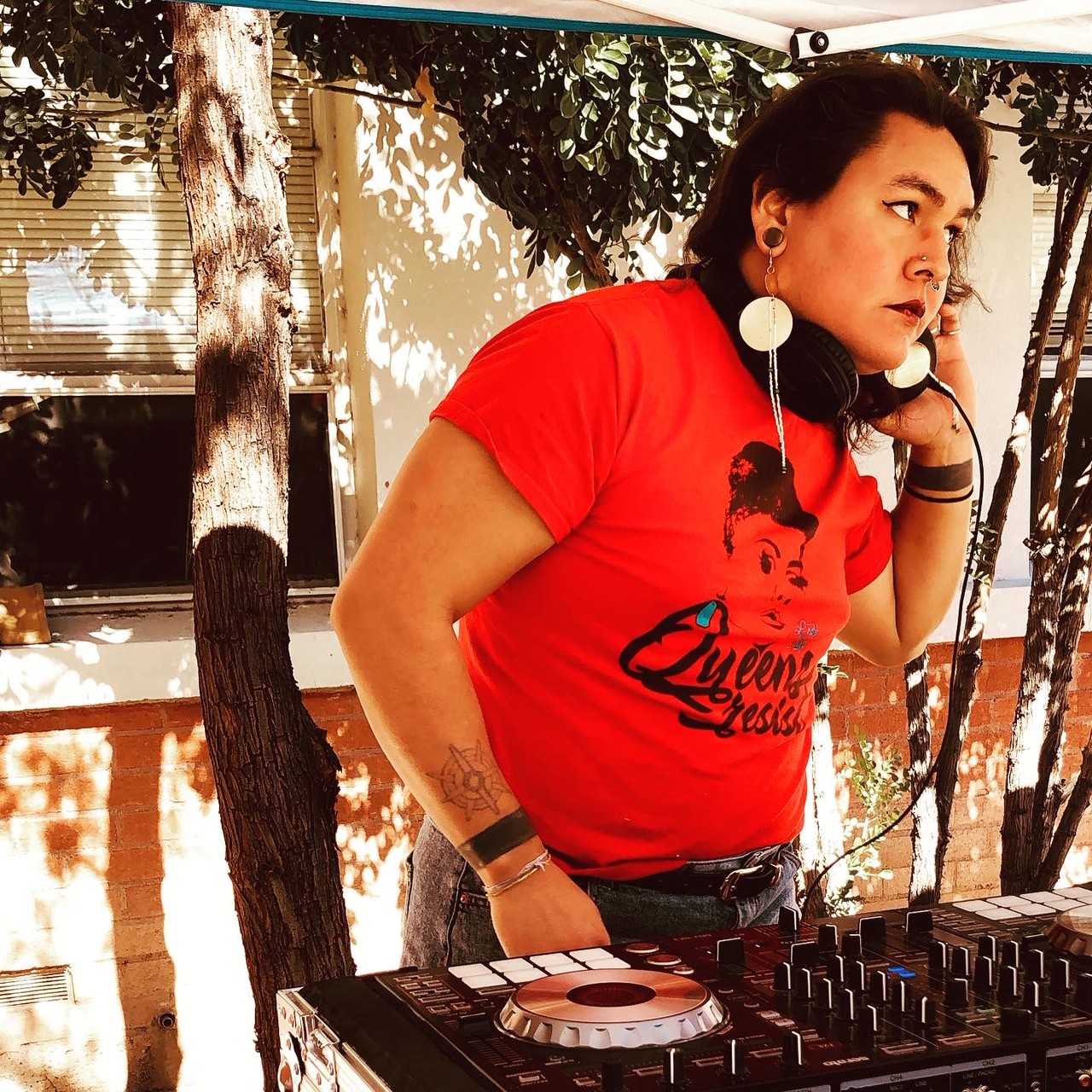
When Villegas took a break from teaching, she was working closely with the Southern Arizona AIDS Foundation and discovered something groundbreaking about her gender identity.
“[The Southern Arizona AIDS Foundation] opened up my eyes to my trans-ness,” Villegas said. “It helped me be more comfortable with myself. I was still non-binary back then. And then after I left that job, I was like, whoa — I’m fucking trans. Like whoa, this is like a reality to me now.”
For Villegas, music isn’t just an educational tool, but a method of safe self-expression. Villegas professed that her experiences onstage gave her an outlet to explore her identity in a controlled environment where she felt at home.
“[Sonido Tambó] really gave me a place to experiment,” Villegas said. “We’re onstage, even though it can notoriously be unsafe at a club. I was onstage, I’m still onstage and I’m away from the masses. No one bothers me up there. I am very safe, there are security guards. Everyone knows who I am. So, I’m able to just wear whatever I want.”
According to Villegas’ nominator, artist and former UA student Jennifer Skinner, Villegas’ consideration for others in her community was part of the reason she was nominated for the award in the first place.
“It was the least that I could do for all the great things that she’s made me feel in her artistry and me, creating spaces for me to feel comfortable [in] as a Latinx queer person,” Skinner said. “It’s important to recognize the people who make us feel comfortable in our own skin, and she’s definitely one of those people that I found here in Tucson.
The final Governor’s Arts Awards recipients will be announced at the 2020 Governor’s Arts Awards Gala on March 26 at the Mesa Arts Center.
Follow Ella McCarville on Twitter



